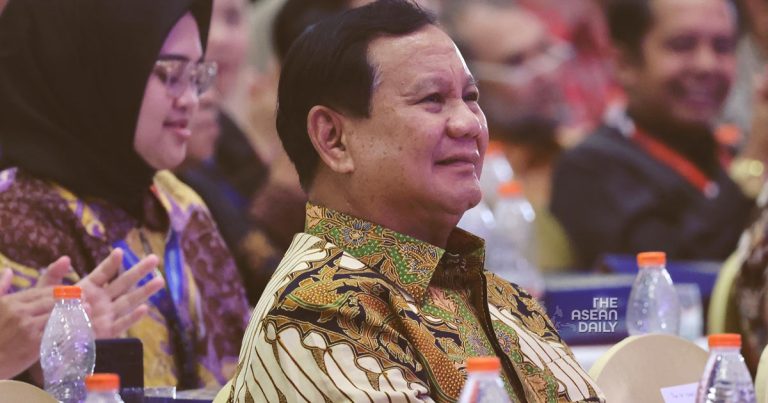21-1-204 (JAKARTA) In the lead-up to Indonesia’s upcoming election, Prabowo Subianto, a former military general with a controversial past, has emerged as the frontrunner in the polls, sparking widespread concern among citizens who vividly remember the autocratic rule of his former father-in-law, Suharto. Despite a history marred by allegations of human rights abuses and suppression of democracy, Prabowo, now 72, has strategically rebranded himself over the years in pursuit of the presidency.
With the support of a running mate, the 36-year-old son of the outgoing president Joko Widodo, Prabowo’s lead in the polls has alarmed critics who fear a return to a dark chapter in Indonesia’s history. The prospect of a Prabowo victory has ignited fears of democratic regression, with observers warning that it could signal a setback for the democratic strides made in Southeast Asia’s most vibrant democracy.
Hendardi, the director of the Setara Institute for Democracy and Peace, expressed concern, stating, “What will happen is the death of democracy. We have long been against Prabowo, and with our limited power, we were still able to prevent him from moving forward. But now he has gained this support.”
Prabowo, who currently serves as the defense minister, has downplayed criticisms of his track record during the campaign. However, his rhetoric at a recent presidential debate underscored his inclination towards a strong military, claiming that without it, a nation “will be crushed,” drawing parallels to the situation in the Gaza Strip.
Competing against Anies Baswedan and Ganjar Pranowo, Prabowo needs to secure at least 51% of the vote on Feb 14 for an outright victory. Although polls indicate he is leading, his support hovers around 46%, suggesting a likely runoff in June and heightened competition.
Once deemed an improbable presidential candidate, Prabowo’s association with Suharto’s 32-year reign and alleged involvement in human rights abuses had kept him at a distance from Indonesia’s political apex. Despite being discharged from the military in 1998 for his role in the abduction and torture of pro-democracy activists, Prabowo has managed to stage a political comeback.
His human rights record, including accusations related to the Kopassus special forces’ actions in East Timor, led to a US ban on his entry for several years. However, he was never formally charged in a criminal court.
In previous election bids, Prabowo presented himself as a military strongman and later as a devout Muslim. In the current campaign, he has attempted to soften his image, portraying himself as a grandfather figure who dances at rallies. The implicit support of Joko, evident in Prabowo naming Joko’s son as his running mate, has contributed to his increased popularity.
The rehabilitation of Prabowo’s image began when Joko appointed him as defense minister, allowing him to re-enter the United States. However, his tenure in this role has been marked by setbacks, including failed military procurement efforts and a flawed food security program.
Critics argue that Joko’s alliance with Prabowo, solidified by Joko’s son joining the ticket, is a ploy to wield influence by grooming his successor. This alliance, while consolidating power, has raised concerns about the potential erosion of democratic values in Indonesia.
Prabowo’s vision for Indonesia includes socio-economic justice, as seen in proposals like free milk in schools and plans to transform the nation into a “digital nation.” Born into one of Indonesia’s prominent political families, Prabowo’s familial ties and substantial wealth, estimated at around $130 million, have played a significant role in his political ascent.
While Prabowo’s political makeover has resonated with Indonesia’s youth, a crucial voting bloc, concerns persist about the potential ramifications of his presidency. For many citizens, the specter of a return to authoritarian rule looms large, emphasizing the delicate balance Indonesia faces in navigating its democratic future.




